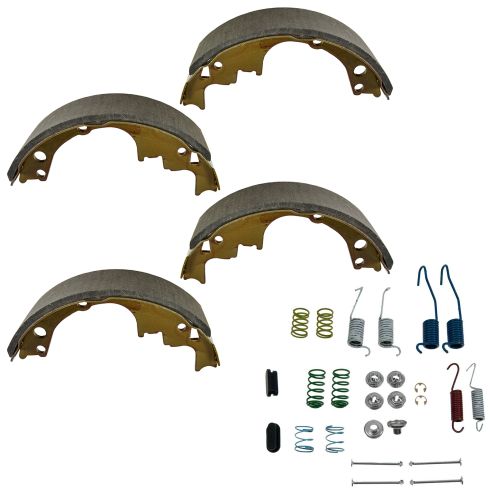1ABDS00079-Rear Brake Shoes DIY Solutions BFS00092
Replaces
1983 GMC Jimmy S-15 with 9.5 Inch Drums Rear Brake Shoes DIY Solutions BFS00092
Product Reviews
Loading reviews
4.67/ 5.0
6
6 reviews
one missing spring
February 28, 2017
I always replace springs. Drum brakes do much better with new springs. This kit was missing one spring so I had to use an old spring, thus the 4 star rating.
Good job.
December 2, 2017
Timmly and correct.Very good job. Will use you guys again.thank you.
Amazing
May 6, 2019
Dont have the car anymore but the parts was perfect fut and was easy to get on and came so fast too
Good parts, shipping speed is nice
May 19, 2021
I like 1a auto, parts always fit and function, and shipping speed is always nice
Good
December 11, 2021
Good
December 10, 2022
All the parts are there, drum brakes and all the springs are a pain, but are working well.
Customer Q&A
do you have free shipping?
January 10, 2022
10
Yes, we offer free shipping via USPS for this product.
January 10, 2022
Cristina P
GMC is a registered trademark of General Motors Company. 1A Auto is not affiliated with or sponsored by GMC or General Motors Company.
See all trademarks.











